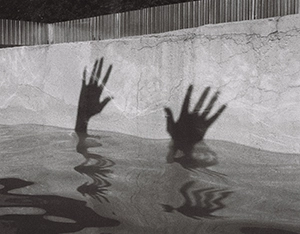When most people think of OCD, they think of obsessive thoughts about cleanliness or symmetry. But there is another type of OCD that is much less talked about: suicidal OCD. This type of OCD can be incredibly debilitating, as the thoughts of suicide become a constant torment. If you are struggling with suicidal OCD, please know that you are not alone. In this blog post, we will discuss the signs and symptoms of suicidal OCD, as well as treatment options.
Defining Suicidal OCD

By the name of it, one can figure that suicidal OCD is a branch off of regular OCD. In short, it’s when the intrusive thoughts turn from “What if I get sick and die?” to “I wish I was dead” or “I should kill myself.” These dark thoughts can take the form of obsessive, intrusive thoughts that come out of nowhere and won’t leave the person alone. For example, a person with suicidal OCD might be constantly fixated on the idea of jumping off a building, even though they have no intention of actually doing so.
These dark thoughts can be incredibly distressing and may cause the person to engage in avoidance behaviors. For instance, a person with suicidal OCD might avoid tall buildings or bridges, as they are afraid of the thoughts that may come into their head. Or, they might avoid being alone, as they are afraid of what they might do if left alone with their thoughts.
In addition to the intrusive thoughts and avoidance behaviors, people with suicidal OCD may also experience anxiety, depression, and suicidal ideation. This can be a very dangerous combination, as the suicidal thoughts may become more and more intense, leading to a heightened risk of suicide.
If you or someone you know is struggling with suicidal OCD, it’s important to seek help from a mental health professional. This is an extremely taxing and burdening type of OCD to live with, and professional help can make a world of difference.
Signs And Symptoms

In addition to the dreadful, dark, and disturbing thoughts about death and suicide, people with suicidal OCD may also manifest itself in the following ways:
- Constantly talking about death or suicide
- Intense fear of losing control and harming oneself or others
- Avoidance of anything related to death or suicide
- Making jokes about death or suicide
- Withdrawing from friends and family
- Imagining what it would be like to die
- Long periods of depression or sadness
- Increased alcohol or drug abuse
- Acting impulsively and recklessly
- Wanting to “punish” oneself
- Excessive rumination about death and dying
- Losing interest in activities that used to bring joy
- Expressing feelings of hopelessness or helplessness
- A preoccupation with making sure everything is “just right” or perfect
These are all signs that someone may be struggling with suicidal OCD. If you or someone you know is exhibiting any of these behaviors, it can be a huge relief to seek professional help. suicidal OCD is a treatable condition, and with the right treatment, people can and do recover.
Causes

OCD and suicide are rather sensitive and complex issues that still need more research to be fully understood. However, there are some risk factors that have been linked to both OCD and suicide. These include:
- A history of mental illness in the family: This can include OCD, depression, PTSD, bipolar disorder, schizophrenia, etc.
- Childhood trauma: This can include physical, sexual, or emotional abuse. If one experiences such hardships as a child, one may be more likely to develop OCD or other mental illnesses later on in life.
- A history of suicide in the family: This is a major risk factor, as it suggests that suicidal thoughts and behaviors may be passed down from generation to generation.
- A history of physical illness: This can include any chronic or terminal illnesses. Having such an illness can increase the risk of developing OCD, as well as the risk of suicide.
- Exposure to violence: This can be either witnessing or experiencing violence. When one is exposed to violence, it can increase the likelihood of developing OCD or other mental illnesses.
- Loss of a loved one: This can be due to death, divorce, or any other type of loss. Witnessing death or loss can make an individual prone to suicidal OCD tendencies.
- Near-death experience: This can be either your own or someone else’s. When one is in a situation where death is a possibility, it can trigger OCD and suicidal thoughts.
There is still much more research that needs to be done in order to fully understand the link between OCD and suicide. However, these are just some of the risk factors that have been linked to both OCD and suicide. It’s important to remember that not everyone who has these risk factors will develop either OCD or suicidal thoughts. And, even if someone does have these risk factors, it doesn’t mean that they are doomed to develop either OCD or suicidal thoughts. There is always hope, and there are always treatment options available to assist your healing journey.
Consequences
When one’s mind is constantly burdened with dark and disturbing thoughts about death and suicide, it can take a toll on one’s mental and physical health. suicidal OCD can lead to:
- Anxiety and depression: This can be due to the constant worry and fear of death or harm, as well as the negative and dark thoughts about dying and suicide.
- Insomnia: This can be caused by the anxiety and worry that come with suicidal OCD.
- Weight loss or gain: This can be due to the lack of appetite that often comes with depression and the stress of intrusive thoughts.
- Fatigue: This can be caused by insomnia and lack of sleep that come along with suicidal OCD. Additionally, constant thinking and ruminating can also cause tiredness.
- Irritability: This can be due to the mood fluctuations and dark thoughts associated with suicidal OCD.
- Substance abuse: This can be a way to self-medicate the anxiety, stress, and depression. They may also consume alcohol or similar substances to distract themselves.
- Self-harm: This can be a way to release the pain and suffering that comes with suicidal OCD.
- Suicide: This is the ultimate consequence of suicidal OCD. If someone is not able to get treatment for their condition, they may be unable to see any other way out than to take their own life.
These are just some of the ways that suicidal OCD impacts the quality of life. If you or someone you know is struggling with suicidal OCD, it’s important to seek professional help. suicidal OCD is a treatable condition, and with the right treatment, people can and do recover. There is hope, and there is help available.
Tips To Deal
Now that we are aware of how serious and life-threatening suicidal OCD can be, it’s important to know how to deal with it. If you are struggling with suicidal OCD, here are some tips that may be helpful:

- Talk to someone who understands: This can be a friend, family member, therapist, or any other support system. Talking to someone who understands what you’re going through can be incredibly helpful. They can offer support and guidance when you need it the most.
- Challenge your thoughts: When you’re having intrusive thoughts, it’s important to challenge them. This can be done by asking yourself questions like “Why am I thinking this?” or “Is this thought really true?”. By challenging your thoughts, you can help to reduce their power and control over you.
- Document your thoughts: This can be done in a journal or any other way that you feel comfortable. Writing down your thoughts can help to lessen their intensity and also help you to see them in a different light.
- Engage in healthy activities: This can include things like exercise, yoga, meditation, or anything else that you find helpful. Healthy activities can help to reduce
- Focus on self-care: This includes things like eating a balanced diet, getting enough sleep, and exercising regularly. Taking care of yourself physically can help to improve your mental health as well.
- Find a hobby or activity that brings you joy: Doing things that make you happy can help to take your mind off intrusive thoughts. It can also help to increase positive feelings and emotions.
- Seek professional help: This is perhaps the most important tip. If you are struggling with suicidal OCD, it’s important to seek professional help as soon as possible. There are many different treatment options available, and with the right treatment, people can and do recover.
These are some of the things that can be helpful when dealing with suicidal OCD. If you or someone you know is struggling with suicidal OCD, please remember that there is hope, and there is help available. You are not alone in this battle. Help is waiting for you. Seek professional assistance today so that you can begin your journey towards healing and recovery.
Conclusion
To conclude the above, suicidal OCD is a serious mental illness that can have devastating consequences. If you or someone you know is struggling with suicidal OCD, it’s important to seek professional help as soon as possible. There is hope, and there is help available. With the right treatment, people can and do recover. You are not alone in this battle.
If you or someone you know is looking for a reliable and accessible source to get quality mental health care, do consider Therapy Mantra. We have a team of experienced mental health professionals who can help you learn how to manage your OCD symptoms. Our services are available from all across the globe at affordable rates. Contact us today to book an online therapy session or download our free OCD treatment app on Android or iOS for more information.


